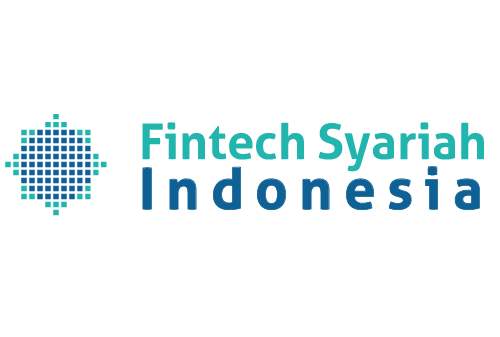Analisis Persepsi Konsumen Pada Penggunaan Layanan LinkAja Syariah di Kota Bekasi
Abstract
This study was conducted to find out how consumers perceive LinkAja Syariah users by analyzing stimulus factors and individual factors in using LinkAja Syariah in Bekasi City. This study uses descriptive qualitative research methods. Data collection techniques used are interviews and documentation. Data analysis techniques used are data reduction, data presentation and conclusions. Based on the results of the research analysis, it was concluded that consumer perceptions of the use of the LinkAja Syariah service by analyzing the stimulus factors in the three features were that the LinkAja Syariah service had a simple and easy-to-understand appearance so that it was easy to use and the size of the application was small. Then on the individual factor in the three features, the LinkAja Syariah service collaborates with many companies or institutions so that the LinkAja Syariah service application is integrated with the application of the company or institution, there are minimal obstacles, although there are some obstacles that occur by LinkAja Syariah users.References
Abrilia, N. D., & Sudarwanto, T. (2020). Pengaruh Persepsi Kemudahan Dan Fitur Layanan Terhadap Minat Menggunakan E-Wallet Pada Aplikasi Dana Di Surabaya. Jurnal Pendidikan Tata Niaga, 8(3), 1006–1012.
Anggito, A., & Setiawan, J. (2018). Metodologi Penelitian Kualitatif. CV. Jejak.
Bank Indonesia. (2022). Tentang Dompet Elektronik. https://www.bi.go.id/QRIS/default.aspx#Dompet-Elektronik
Bank Syariah Indonesia. (2021). LinkAja dan BSI Berkolaborasi, Hadirkan Kemudahan Digital Pacu Literasi Keuangan. https://www.bankbsi.co.id/news-update/berita/linkaja-dan-bsi-berkolaborasi-hadirkan-kemudahan-digital-pacu-literasi-keuangan
Chrismastianto, I. A. W. (2017). Analisis SWOT Implementasi Teknologi Finansial Terhadap Kualitas Layanan Perbankan Di Indonesia,. Jurnal Ekonomi Dan Bisnis, 20(1), 133–144.
DataIndonesia.id. (2022). Jumlah Penduduk Muslim Di Indonesia. https://dataindonesia.id/ragam/detail/sebanyak-869-penduduk-indonesia-beragama-islam
Dewi, Y. A. (2019). Analisa Persepsi Konsumen dan Brand Awareness terhadap Peningkatan Penjualan Online Al Zena Scarf Bandung. ATRABIS: Jurnal Administrasi Bisnis, 4, 25–43.
Fadhila, S., Lie, D., Wijaya, A., & Halim, F. (2020). Pengaruh Sikap Konsumen Dan Persepsi Konsumen Terhadap Keputusan Pembelian Pada Mini Market Mawar Balimbingan. SULTANIST: Jurnal Manajemen Dan Keuangan, 8(1), 53–60.
Firmansyah, & Moeliono, N. N. K. (2020). Identifikasi Persepsi Konsumen Menggunakan Customer Profile terhadap LinkAja. Jurnal Manajemen, 12(2), 218–226.
Harseno, D. F. (2021). Analisis Faktor-Faktor Yang Memengaruhi Penggunaan E-Wallet Di Indonesia. Accounting and Business Information Systems Journal.
Mauludin, M. S., Ratnawati, D., Arianti, N., Pryastara, M. D., & Novitawati, V. A. (2022). Analisis Persepsi Konsumen Terhadap Penggunaan Jasa Gojek. SALIMIYA: Jurnal Studi Ilmu Keagamaan Islam, 3, 123–141.
Nawawi, H. H. (2020). Penggunaan E-wallet di Kalangan Mahasiswa. Emik, 3(2), 189–205.
Rahma, T. I. F. (2018). PERSPESI MASYARAKAT KOTA MEDAN TERHADAP PENGGUNAAN FINANCIAL TECHNOLOGY (FINTECH). AT-TAWASSUTH: Jurnal Ekonomi Islam, 3, 642–661.
Ramdhan, M. (2021). Metode Penelitian. Cipta Media Nusantara.
Rizaldi, M. A., Fathoni, M. A., & Yetty, F. (2021). SYARIAH PADA MASYARAKAT JABODETABEK bentuk server based . Biasanya e-wallet berbentuk aplikasi yang berbasis di secara digital 3 . Salah satu fintech di Indonesia yang berbentuk dompet digital.
Sugiyono. (2017). METODE PENELITIAN KUANTITATIF, KUALITATIF, DAN R&D. Alfabeta.
Umaningsih, W. P., & Wardani, D. K. (2020). Pengaruh Persepsi Kemudahan, Fitur Layanan, Dan Keamanan Terhadap Niat Menggunakan E-Money. Jurnal Akuntansi Dan Ekonomi, 5(21), 113–119.
Downloads
Published
How to Cite
Issue
Section
License
Authors who publish with this journal agree to the following terms:
- Authors retain copyright and grant the journal right of first publication with the work simultaneously licensed under a Creative Commons Attribution 4.0 International License that allows others to share the work with an acknowledgment of the work's authorship and initial publication in this journal.
- Authors can enter into separate, additional contractual arrangements for the non-exclusive distribution of the journal's published version of the work (e.g., post it to an institutional repository or publish it in a book), with an acknowledgment of its initial publication in this journal.
- Authors are permitted and encouraged to post their work online (e.g., in institutional repositories or on their website) before and during the submission process, as it can lead to productive exchanges, as well as earlier and greater citation of published work.

This work is licensed under a Creative Commons Attribution 4.0 International License.











